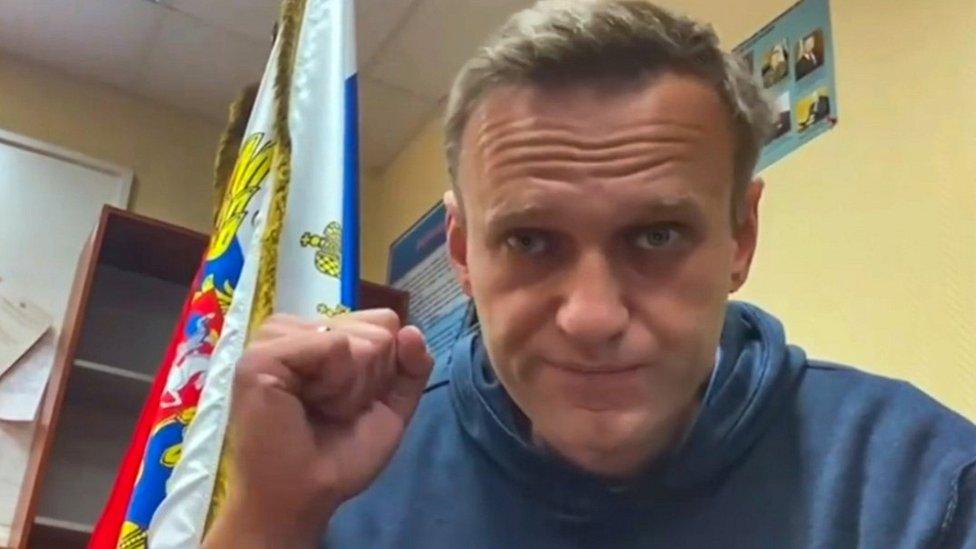Alexei Navalny: Putin critic defiant as new trial begins
- Published
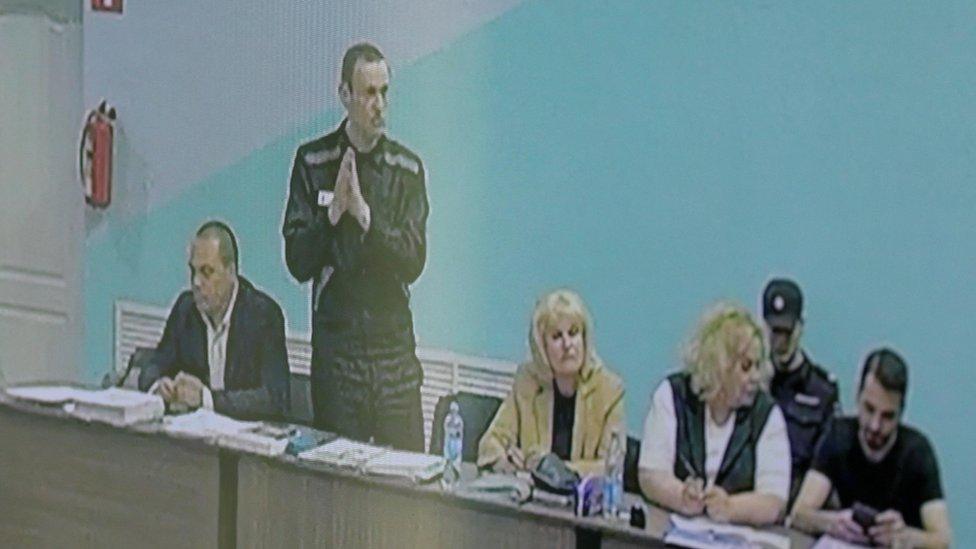
Navalny has lost a lot of weight in jail, but is engaged and as vocal a critic as ever
At Penal Colony No 6, they've made an effort.
Outside the maximum-security prison, a giant Russian tricolour has been stretched across the ground. Planted on top in three strict lines are red, blue and white blooms to mirror the national flag. A patriotic flowerbed for a Russian prison.
But I'm not here for the gardening.
Behind these walls, Alexei Navalny - Russia's most famous prisoner and the Kremlin's most vocal critic - is about to go on trial. Again.
Prison guards conduct a thorough search of our bags. Cue the sniffer dogs.
Finally, we're let through. We're under strict instructions not to turn on our video camera until permitted to do so.
Along with the other journalists who've made the journey here to Melekhovo, we're led into a building.
We're not allowed into the hall which has been turned into a temporary courtroom. Neither are Mr Navalny's parents who are here, too. Instead, for now, we can follow proceedings on a video screen in a separate room.
The signal's switched on and the picture appears. It's a wide shot of the makeshift courtroom. No close-ups.
But Alexei Navalny is visible, sitting at a table with his defence lawyers. He's clearly lost a lot of weight in prison.
But Mr Navalny is engaged and defiant as he rails against the judge and condemns the decision to try him here.
On paper, it's a Moscow court that is hearing the case. But the trial is taking place 150 miles (240km) from the Russian capital.
That suggests the Russian authorities want to avoid the publicity that transporting Mr Navalny to Moscow would inevitably bring.
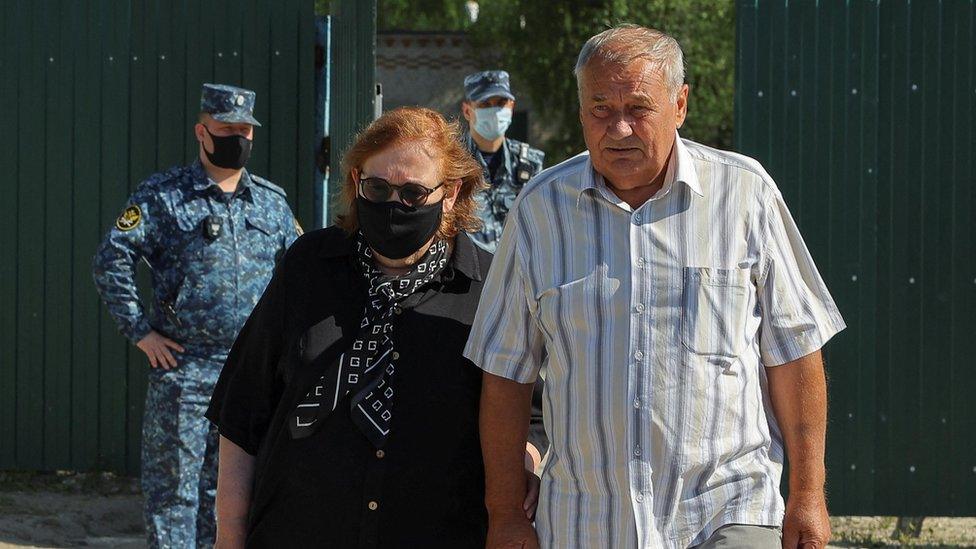
Navalny's parents were not allowed in the courtroom
The picture on the screen doesn't last long. An hour and a half after the start of the trial, the prosecutor demands that proceedings are held behind closed doors.
The judge rules in favour. The video feed is cut.
It will now be even harder to follow what's happening to Russia's most prominent opposition leader in his trial behind bars.
Jailed in 2021, Alexei Navalny is currently serving a nine-year prison term here for parole violations, fraud and contempt of court - charges widely seen as politically motivated.
But that nine-year term is set to increase dramatically.
In this new trial, he faces multiple charges that could add decades to his time behind bars. They include creating an extremist organisation and financing extremist activities.
The authorities have already declared Mr Navalny's network of campaign offices and his Anti-Corruption Foundation "extremist" and shut them down.
There may be worse to come. Mr Navalny says investigators told him to expect another case, another trial, this time related to terrorism charges.
Why do the charges and trials keep coming? Why do the Russian authorities seem determined to pile on the pressure and keep Alexei Navalny behind bars?
A threat even behind bars
Over the years, Vladimir Putin's Kremlin has been busy removing all potential rivals to the president - clearing the Russian political landscape of any potential challengers. It will want to make sure that its loudest critic stays well away from Russia's political stage.
For more than a decade, Alexei Navalny has exposed corruption at the heart of Russian power. His video investigations have received tens of millions of views online.
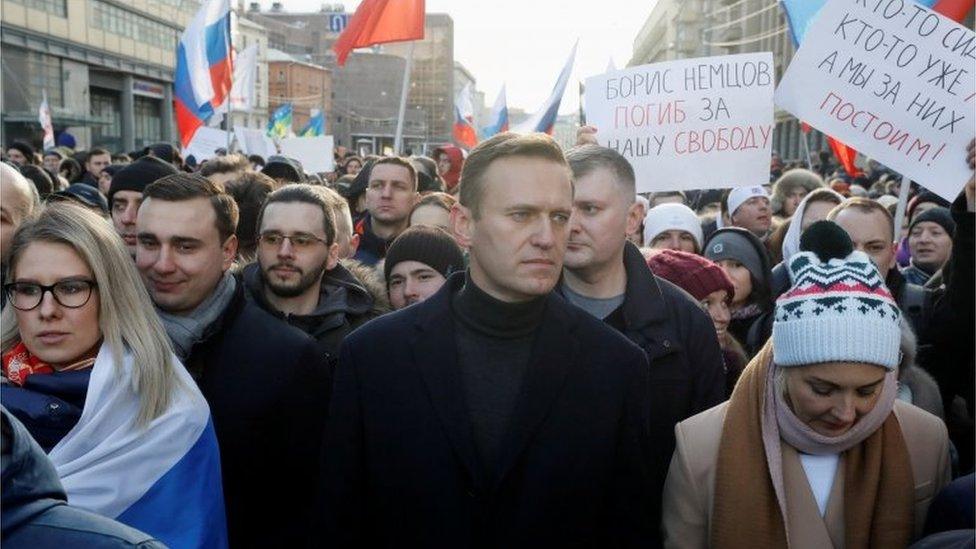
It is Navalny's ability to galvanise crowds that authorities fear
But even more than this, perhaps, it is his ability to mobilise the public, especially young Russians, to take to the streets in anti-government protests which makes the authorities nervous.
In recent years, he has been the only Russian opposition leader capable of organising anti-Putin street protests on a national scale.
He had set up a network of regional campaign offices, having planned to run for president in 2018. He was barred from the vote.
In 2020, Mr Navalny was poisoned in Siberia by what Western laboratories later confirmed to be a nerve agent.
He accused the Kremlin of trying to kill him. The Russian authorities deny that.
After receiving urgent medical care in Germany, his decision to return to Russia in 2021 will have been viewed by those in power here as a direct challenge to the Kremlin. He was arrested on arrival.
Related topics
- Published26 April 2023
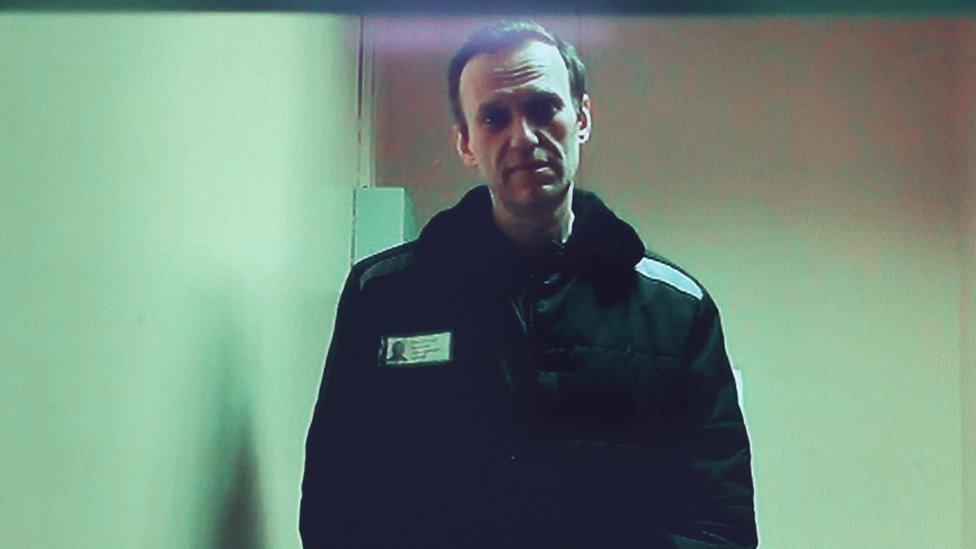
- Published20 April 2023
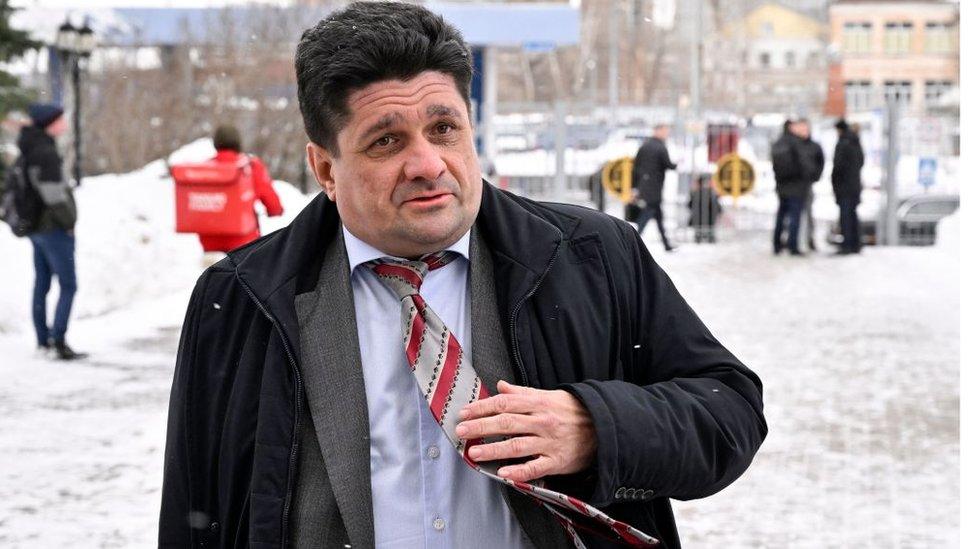
- Published16 February 2024
